Pilgrim State Paintings
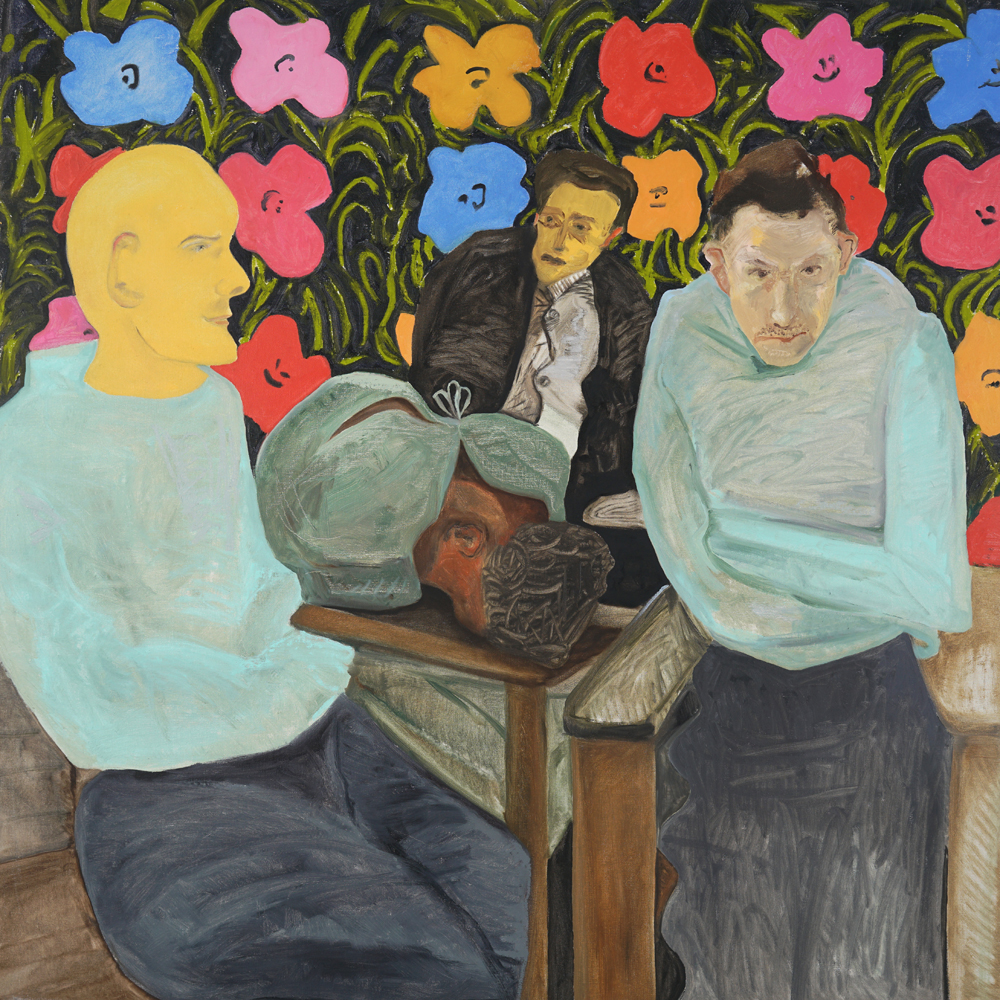
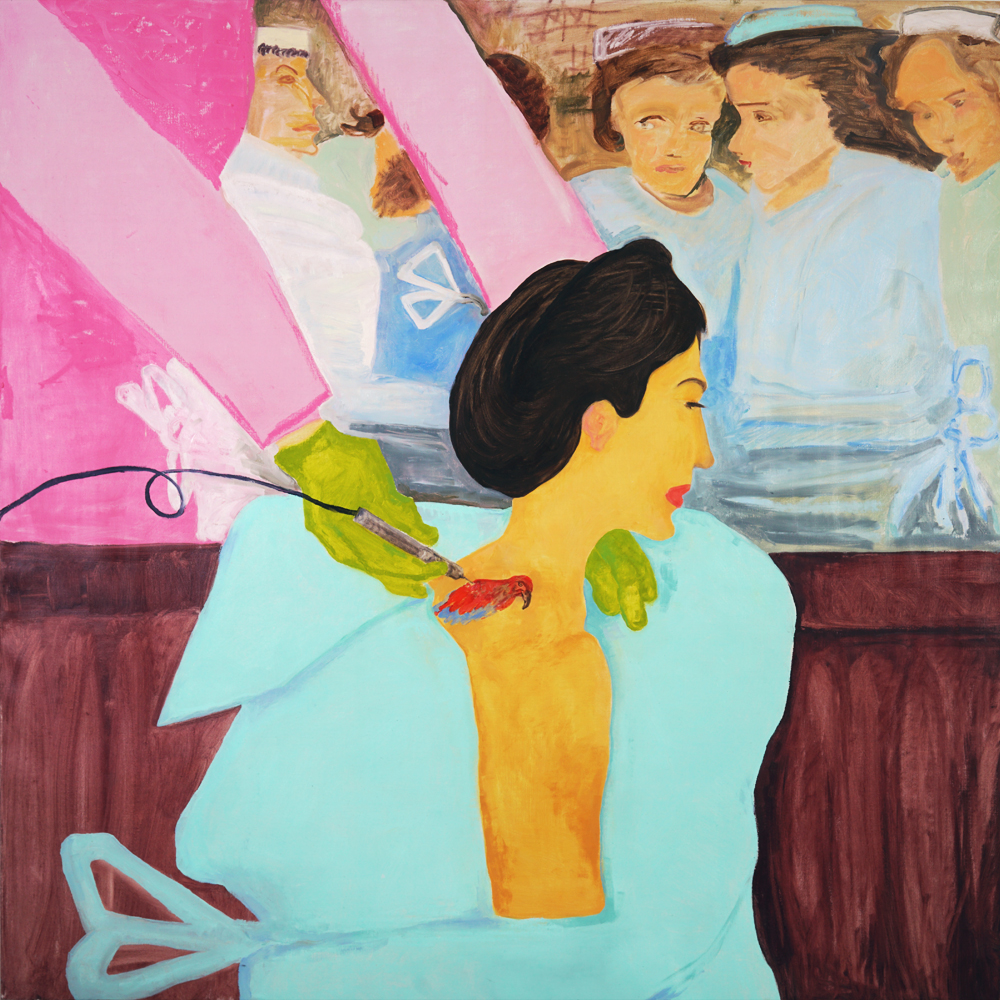
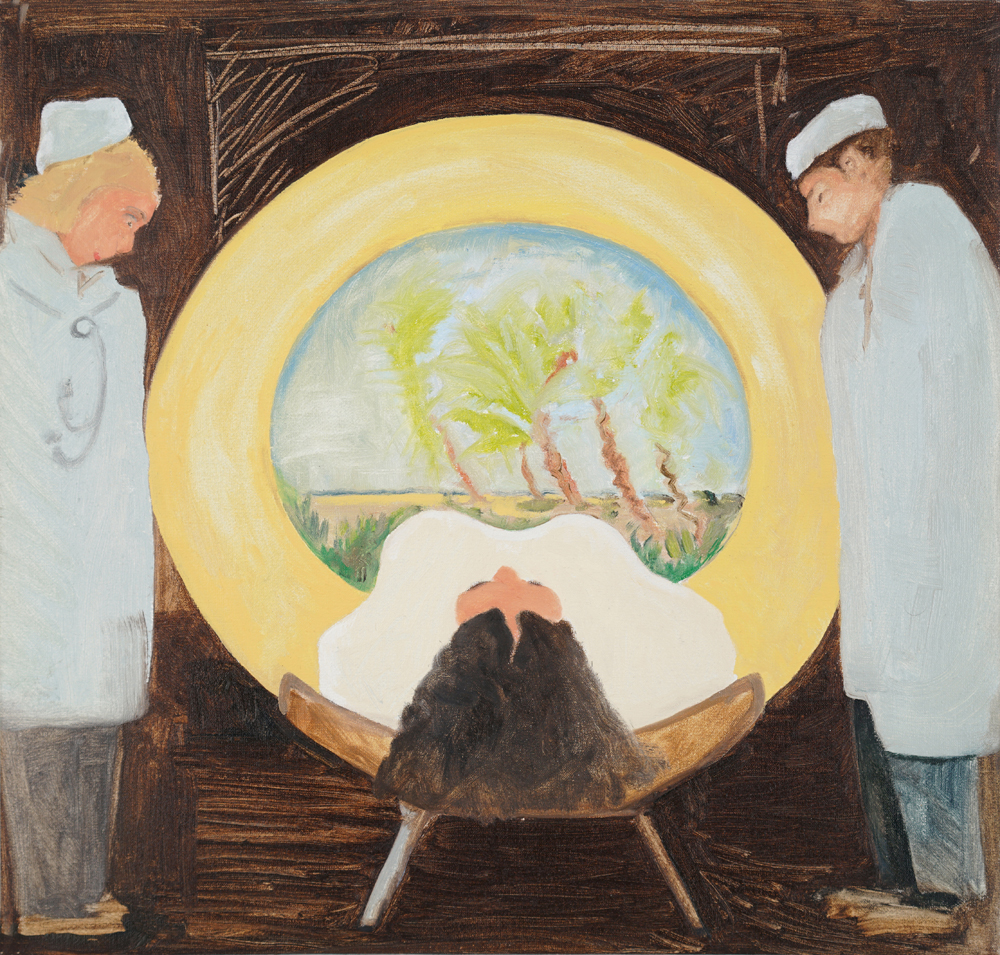
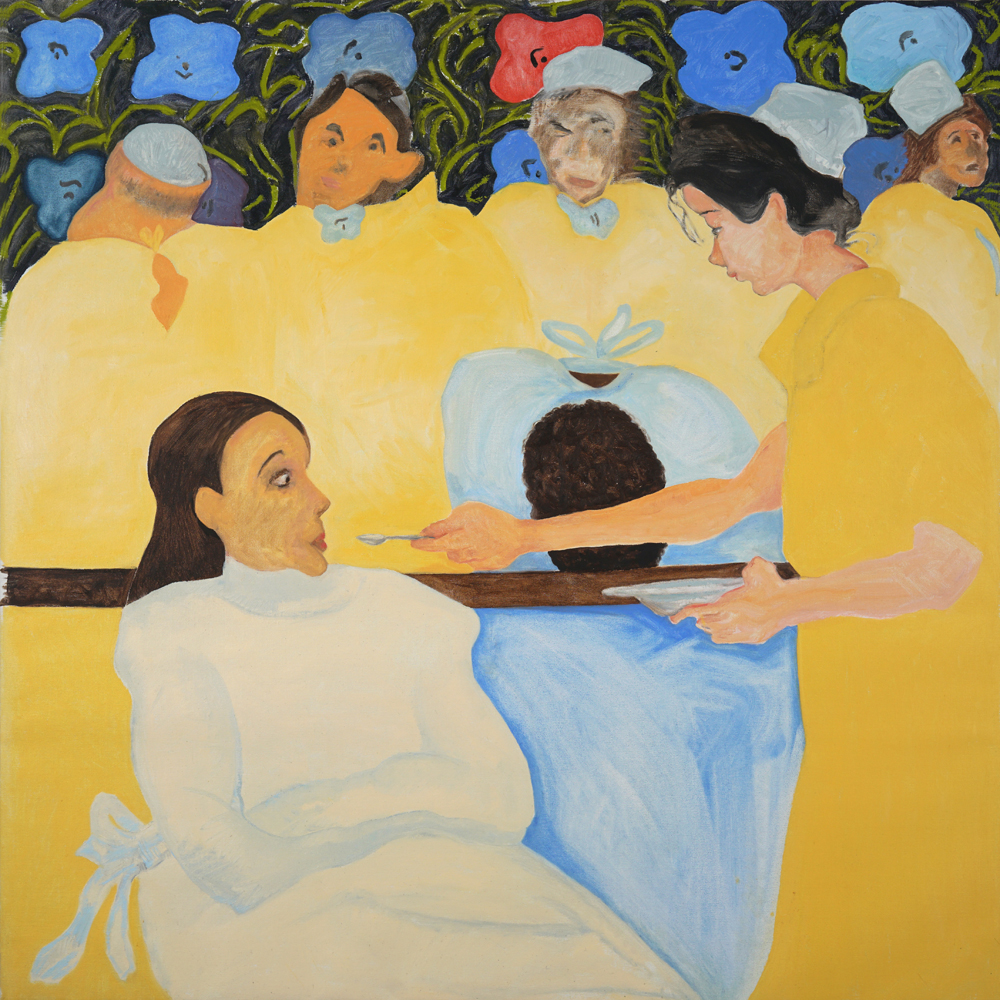
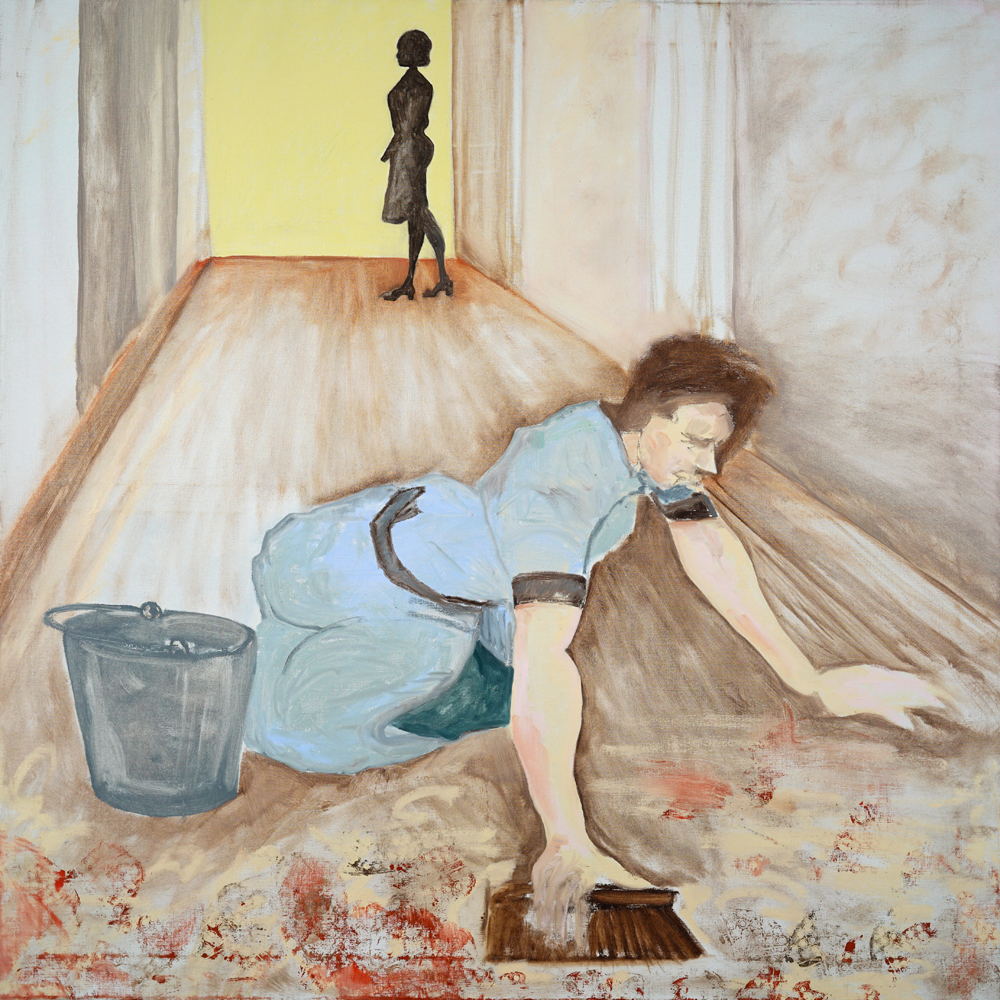
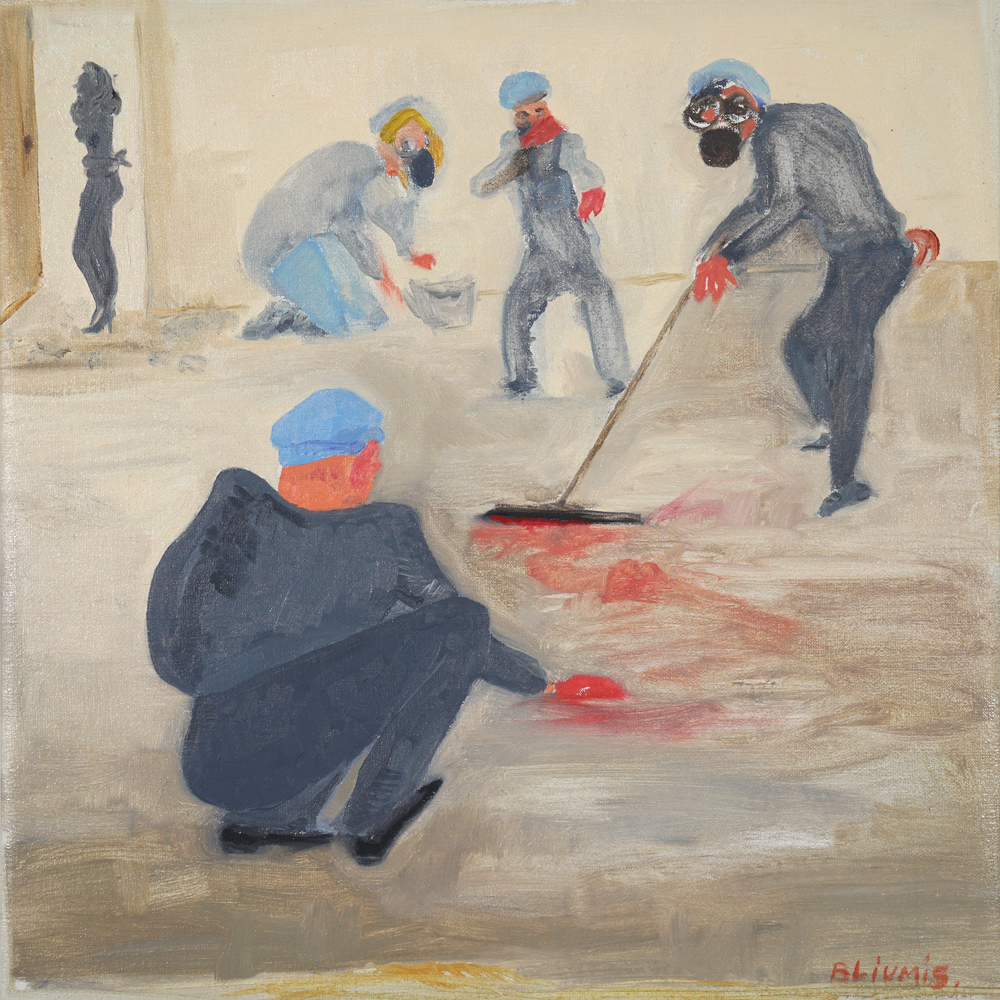
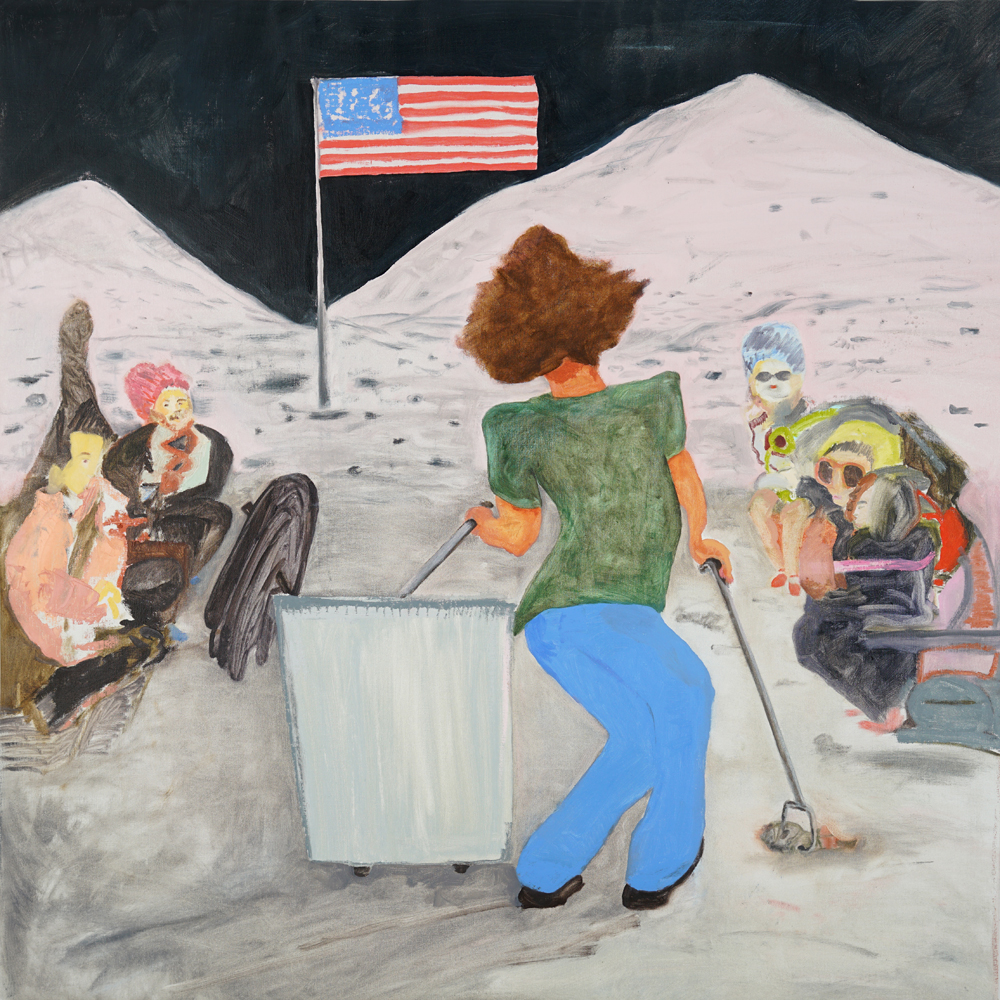
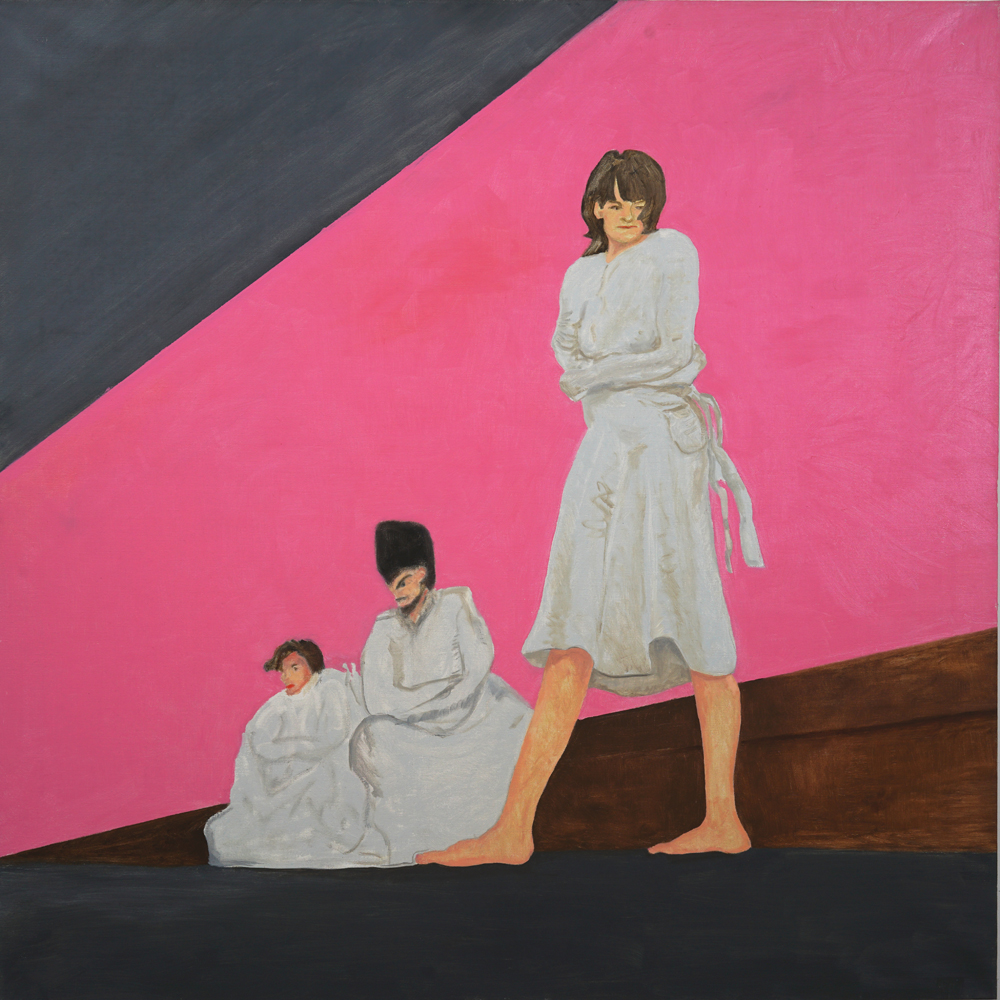
Pilgrim State
by Andres Serrano
“It’s a madhouse! A madhouse!”
Charlton Heston in “Planet Of The Apes.”
Jeff Bliumis painting series Pilgrim State put us into hospital rooms and force us to reevaluate our ability to assert and judge. Reality is relative here.
Taking “ the patient’s” point of vista, we are confronted with confusing hallucinatory spaces and menacing figures of presumed “caregivers.”
The discomfort and isolation of the environment feeds the discomfort and confusion of the brain. Are we seeing it, or imagining seeing it? The faces of seemingly friendly nurses contort into sinister smirks. Are they here to help or to harm? The rooms’ painted walls themselves contort into fantastical subrealities. A deep green field covered with poisonous red mushrooms is rather an inviting escape, a brain defense against the smiling menace with a needle and a tray of blood test vials.
The pilgrims of the Pilgrim State are not content. Neither is the physical space around them. The word “pilgrim” is variously defined as a “traveler, crusader, settler, worshipper, believer” and “one who journeys in foreign lands.” The Pilgrims, or Pilgrim Fathers, were the first settlers of Plymouth Rock, one of the earliest and most successful colonies founded in America. Although prior to their arrival millions of people inhabited the territory, to many, Plymouth Rock and its Pilgrims symbolize the Birth of America.
Pilgrim State Hospital, now known as Pilgrim State Psychiatric Center, opened on October 1, 1931 in Brentwood, New York. When it opened, it was the largest hospital of any kind in the world. It had its own police, fire department, post office, power plant and cemetery. A close-nit community, a land of its own. At its peak Pilgrim State had 13,875 patients. Naomi Ginsberg, Allen Ginsberg’s mother, was one of them. A Pilgrim State of Mind: “Follow your inner moonlight: don’t hide the madness. You say what you want to say when you don’t care who’s listening.” Allen Ginsberg
Jeff Bliumis is an artist who journeys in foreign lands. In Pilgrim State he is the doctor and nurse, patient and visitor and something more, he is the seer. With his paintbrush Jeff sees the world and exploits it by wringing passion and depth out of his subjects: quirky, eccentric, bizarre human beings whose only crime is that they are only too human, too strange and too real. They are the caretakers but they could be the patients. They are the adults but they could be the children. They are who they say they are and thanks to Jeff, we believe them.
Why would we not believe them? Have they lied to us before? Are they lying to us now? Are we able to separate truth from fiction? Do we know and do we care? Do they want to lead or do they want to be led? Are they capable of making those decisions? Who are these people and what do they want? Do they want to bring us together or do they want to tear us apart? Are they willing participants or victims of injustice? Are they making the rules or are they breaking them? Are they friends or are they foes?
Jeff Bliumis does not judge his people. He lets them be themselves. In a world of make believe it’s hard to find the truth and when you find it you know you’re only kidding yourself. It’s better to find comfort in the lie than it is to struggle with the truth. After awhile, does it even matter? When truth and opinion collide he who shouts the longest wins. History is written by those with the loudest voices and the biggest audience. Now now, brown cow, simmer down and eat your chow. Don’t bite the hand that feeds you or you’ll never see that hand again. Where does it say that it’s normal to be normal? Where does it say that we have to live like that? Like his subjects, Jeff Bliumis lives in his own world. He is the Unseen Mover, The Master of His Domain. He welcomes you into his Universe and then asks you
to leave the same way you came in.